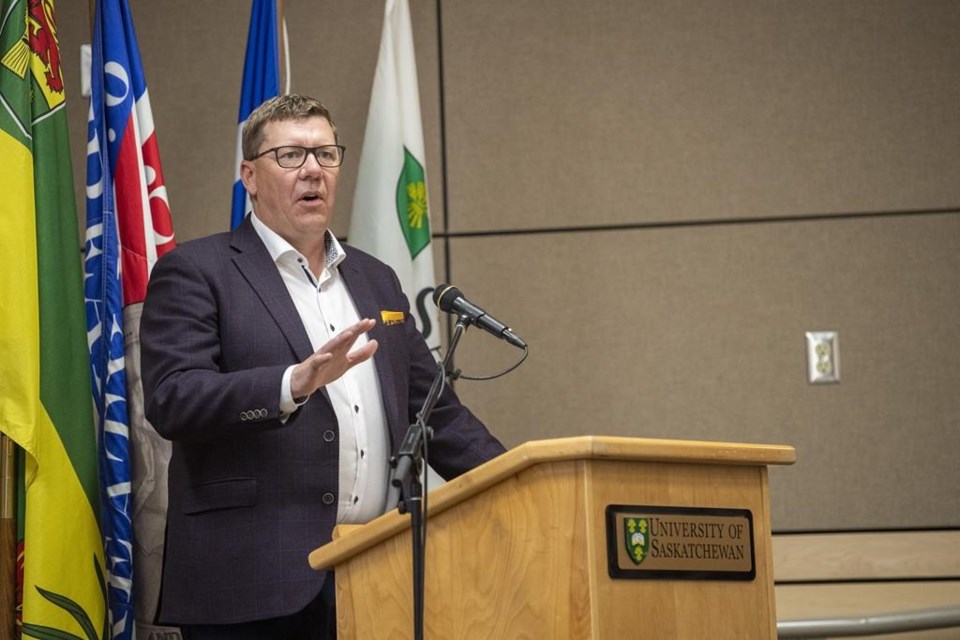REGINA — All large greenhouse gas emitters in Saskatchewan will soon be regulated by the provincial government after Ottawa ruled the plan meets national standards.Â
Saskatchewan and Ottawa jointly announced Tuesday that the federal output-based pricing system for industry will no longer apply in the province starting in 2023.Â
This comes after Saskatchewan applied to have natural gas pipelines and power plants regulated through its own carbon-pricing system.
The federal system will continue to apply in Manitoba, which did not propose a carbon-pricing system, as well as Prince Edward Island, Yukon and Nunavut.Â
Saskatchewan says it doesn't consider its carbon-pricing system a tax because it provides other options to reduce emissions.
Those include paying into a fund to advance green technologies or buying carbon offset credits.
"That allows our industries to continue to innovate. It allows those same industries to grow in this province. It's a program that is balanced, measured, and takes account unique Saskatchewan circumstances," Saskatchewan Minister of Environment Dana Skoropad said Tuesday.
Under the program, Saskatchewan will still have to comply with the federal carbon pricing schedule. That price will increase by $15 per year from $65 per tonne of carbon dioxide in 2023 to $170 per tonne 2030.
"We needed to play within the rules," Skoropad said. "We respect the (federal) carbon pricing (schedule) ... and we need to maintain that pricing schedule." Â
Federal Environment Minister Steven Guilbeault said he's happy to have provinces raise the bar on their industries in order to meet Canada's pollution pricing approach.Â
"We’re all sending a strong message that industry can have confidence and predictability to invest heavily in a low-carbon future," he said in a statement.Â
The federal consumer carbon price will continue to apply in Alberta, Saskatchewan, Manitoba, Nunavut, Ontario, and Yukon.
Residents in those provinces and territories will continue to get quarterly rebate cheques next year.
The federal government says 2023 payments for a family of four will increase to $386 in Alberta, $264 in Manitoba, $244 in Ontario and $340 in Saskatchewan.Â
This report by The Canadian Press was first published Nov. 22, 2022.Â
Mickey Djuric, The Canadian Press




